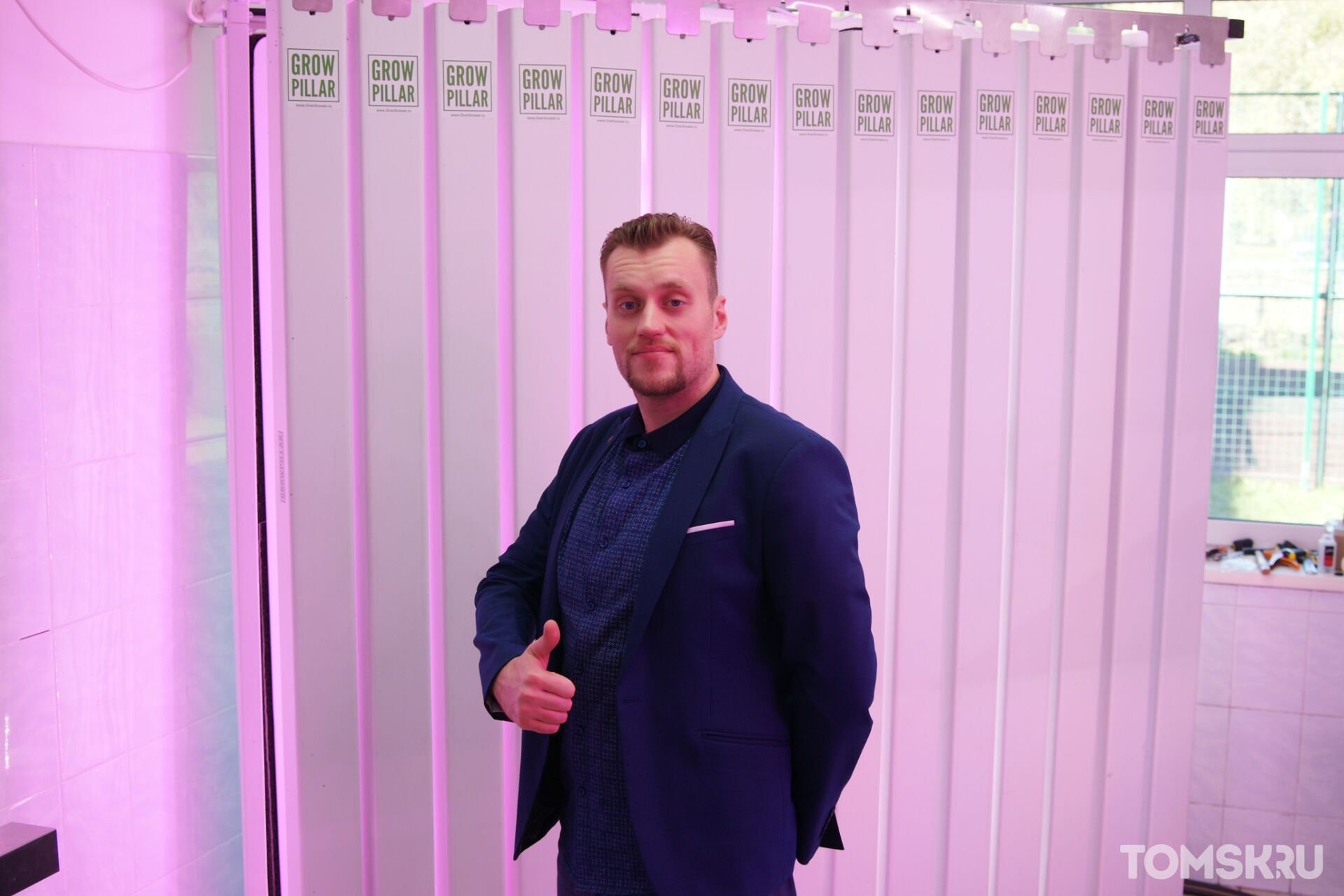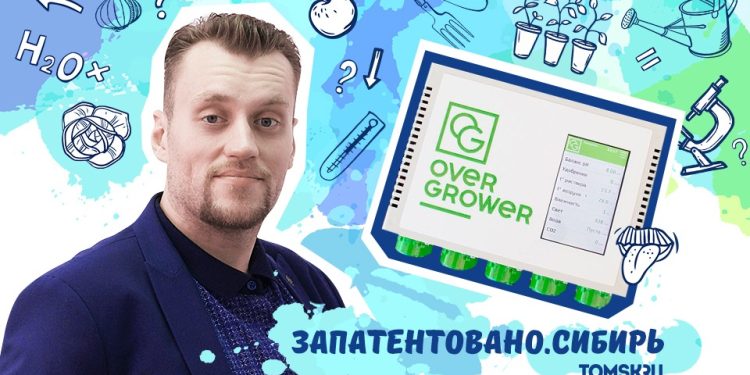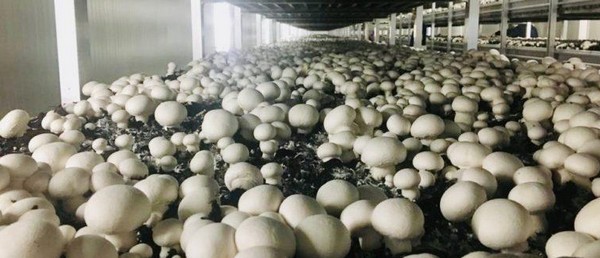The development of the hydroponic complex began for Novosibirsk Roman Rybakov with vegetarianism. However, it was not he who decided to give up meat, but his friend, Vladimir. In 2014, Roman began helping a beginner to grow greens and tomatoes at home. To do this, it was necessary to adjust the hydroponics. Thanks to this method of cultivation, plants do not take nutrients from the ground — they come to them directly through special solutions.
Cherry tomatoes surprised everyone
Enthusiasts experimented for about three months with many different plants. During this time, mold appeared in an unprepared living room with hydroponics due to excess moisture, paintings and wooden furniture were damaged. At a certain point, Vladimir decided to abandon his idea. Roman was already carried away by the process and he was sorry to give up the case halfway. Then he took 2 cherry tomatoes for himself and decided to make them bear fruit.
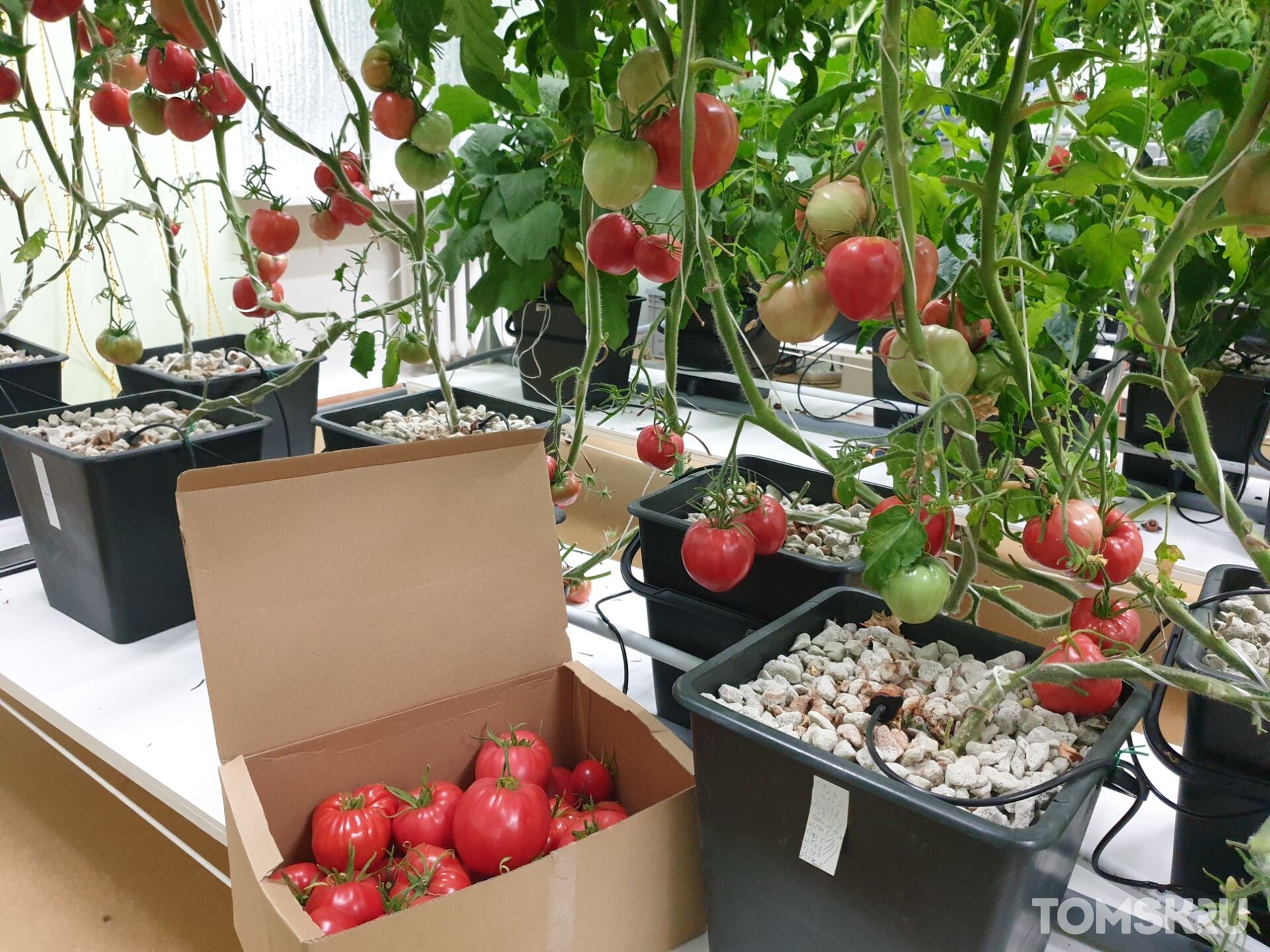
«Каждый день тратил не меньше часа, и в итоге на новогоднем корпоративе все же угостил коллег помидорами. Правда, от самого процесса выращивания я был не в восторге. Однажды перепутал пропорции раствора, и пришлось сливать все 11 литров воды и набирать заново. Уже тогда задумался о том, что неплохо бы автоматизировать процесс. А потом встретил единомышленника, он поддержал мою идею», — вспоминает Роман.
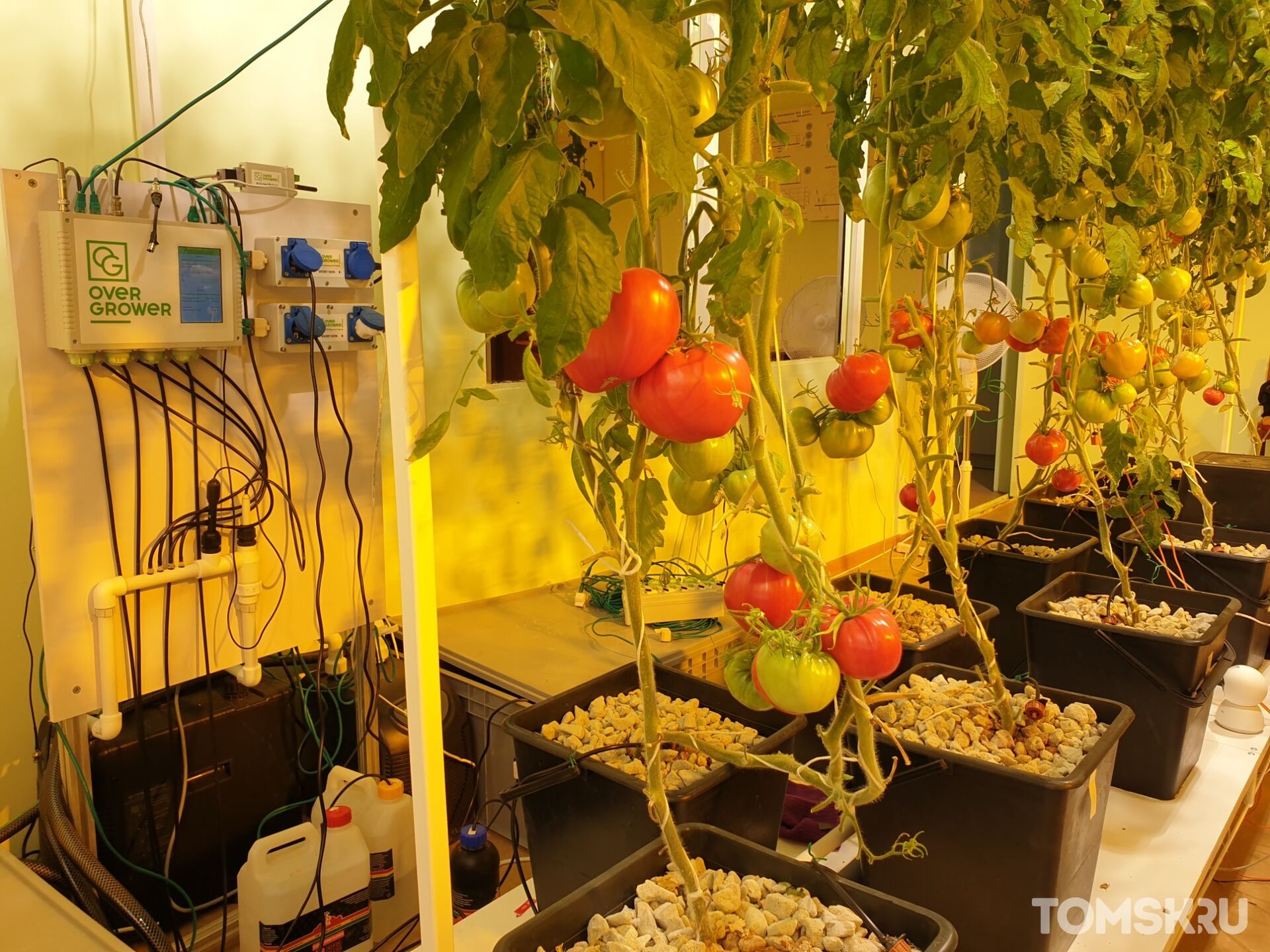
Potatoes almost died
The first buyer of the grover installation was a scientist of the Russian State Agrarian University and a popularizer of science Ivan Chuksin. At that time, he was engaged in growing seed potatoes that are not susceptible to viruses and diseases. He planted experimental samples in a special aeroponic installation. However, Ivan could not stay in the laboratory all the time, quite often he had to go on business trips. As a result, the care of potatoes fell on the shoulders of students. The samples did not always “survive”, sometimes it was no longer possible to rehabilitate them. In 2016, Roman finalized the invention specifically for the scientist.
Automation is the core of any farm
Today, it is impossible to grow vegetables and fruits in large volumes without automation, the engineer believes. However, most of the same opinion is held only abroad. Roman supplies his equipment to 25 countries around the world, but Russians make up only a small part of his customers.
At the same time, indeed, in our country, many enthusiasts grow herbs and vegetables on their window. Of course, there are even more people who want to make money on this. The engineer explains this contradiction with a lack of available funds.
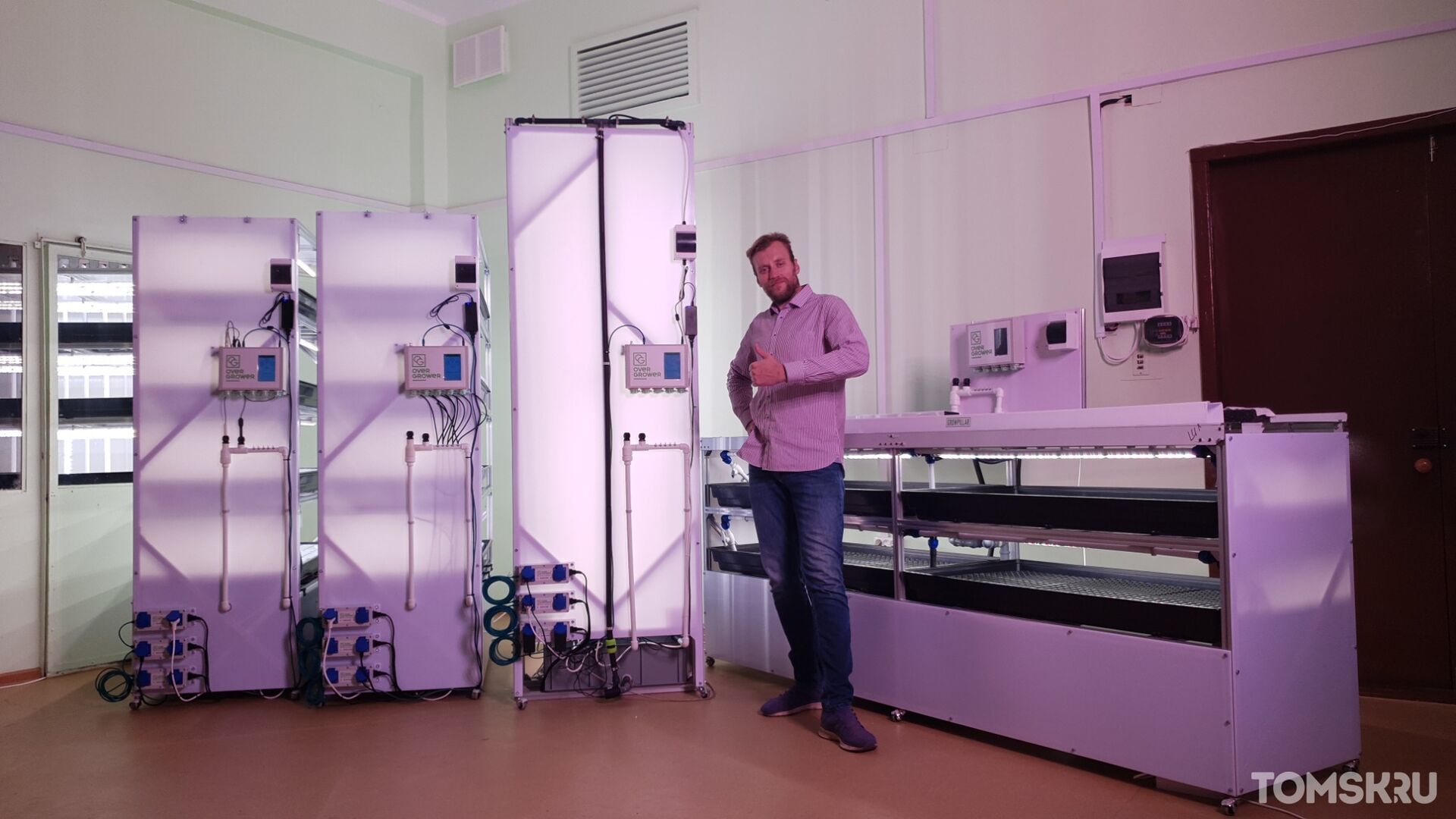
“Let’s say chili peppers are in demand on the market, and if you also sell them not only as peppers, but also in the form of sauce, then you can get a good profit. To come to this conclusion, you need to try to sell your products and, with a high probability, first go into the “minus”. Not everyone has free funds for this,” the man says.
There are more opportunities abroad. Some of the buyers of the Siberian OverGrower are experimental enthusiasts who have some kind of permanent income, and consider growing vegetables as a hobby, and in the future — a side job. However, there are a lot of farmers. Novosibirsk supplies many installations to India and African countries. Farming there is one of the most popular occupations. The installation is also popular in countries where there is no opportunity to engage in agriculture — for example, in Israel. With the help of the complex, even in an ordinary apartment, you can get 4-8 “squares” of useful growing area from one square meter.
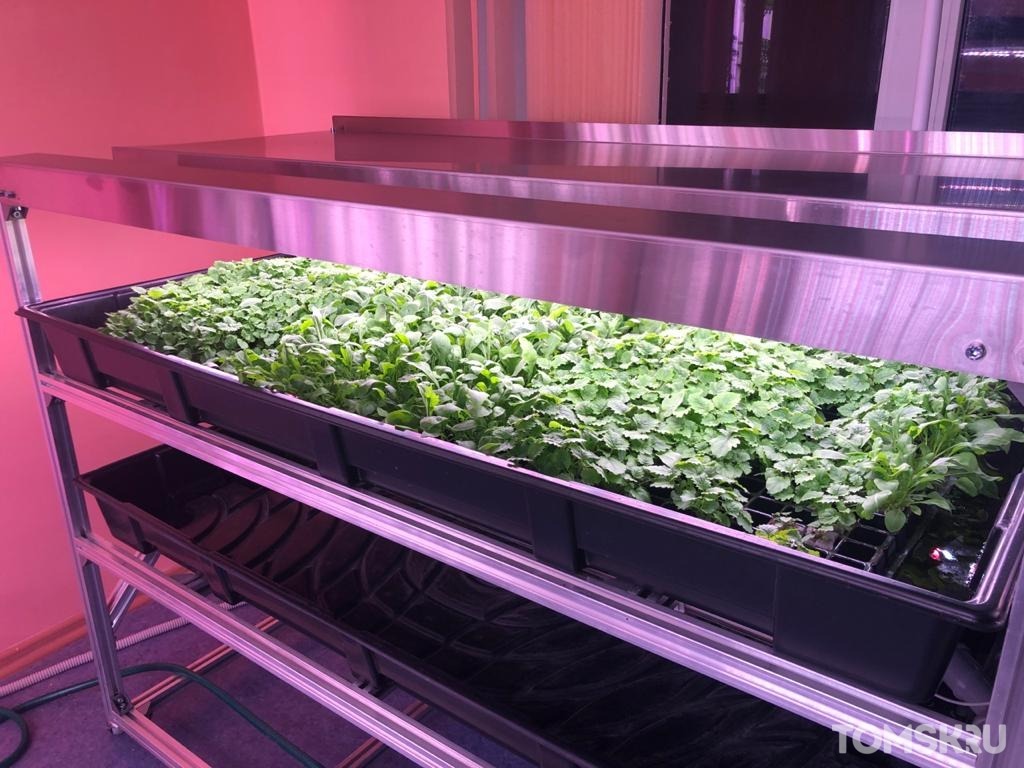
Train as a city farmer
Roman and his associates are actively engaged in the popularization of city farming. So it is customary to call everything that is somehow connected with hydroponic installations, because in cities, as a rule, it is not possible to grow fruits and vegetables on the ground. For adults, classes are held at the Siberian Federal Research Center for Agrobiotechnologies of the Russian Academy of Sciences, where they are taught how to grow plants on hydroponic installations and what to pay attention to first. After completing his postgraduate studies at this institute, Roman plans to head the hydroponics laboratory there.
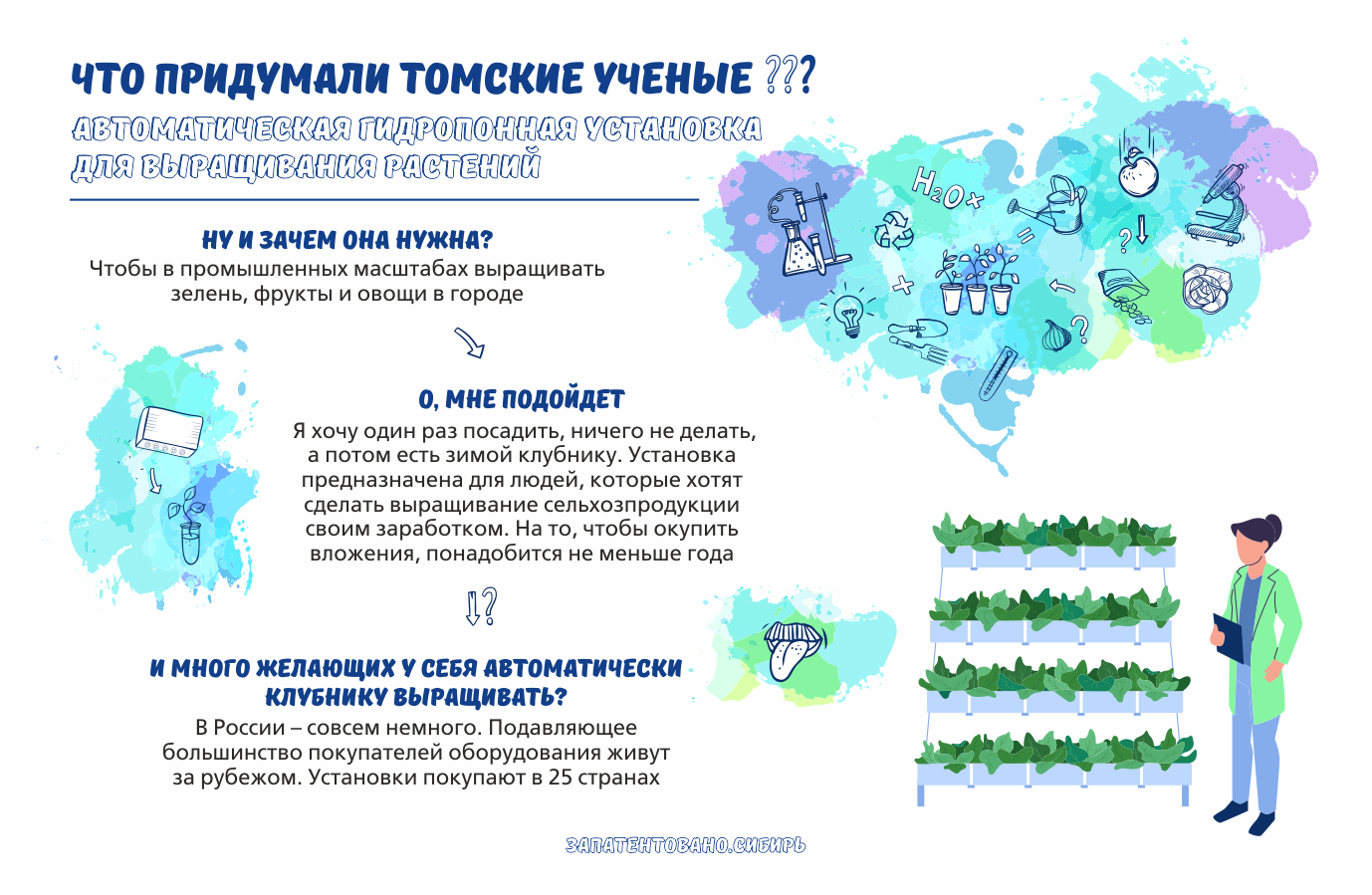
In some schools in Novosibirsk and the Novosibirsk region, Roman’s company helped to assemble hydroponic installations, and children grow agricultural products themselves. In Novosibirsk school No. 112, there was usually enough greenery not only for the school canteen. Sometimes the teacher’s surplus was taken home. And in the Bagan Secondary School, children grow elite seed potatoes.
According to Roman, city farming is slowly but surely gaining popularity in Russia.
“Here we have already found technological partners, organized production. The most important thing is highly qualified personnel. There are also enough of them in Novosibirsk. We are residents of the Academic Park. That is, we are supported by the state. Finding all this in one place abroad, for example, is too difficult,” Roman sums up.
In the future, Roman plans to become an academician of agricultural sciences and develop city farming in Russia on an even larger scale.
